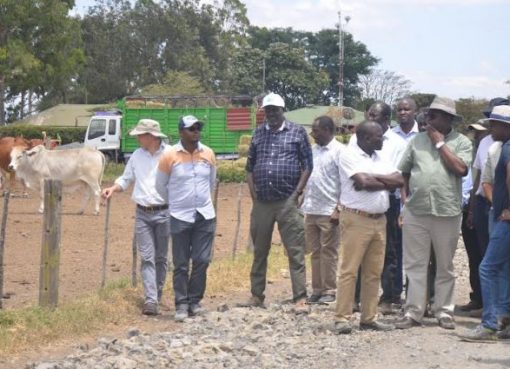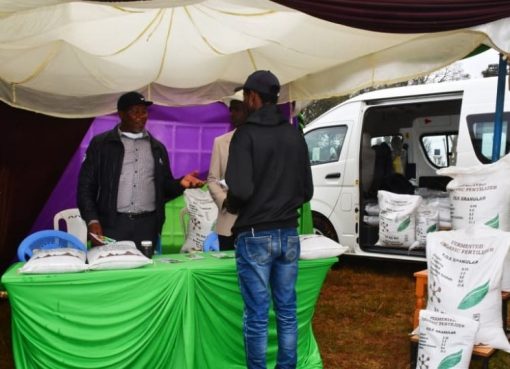The government will begin distributing to farmers new early-maturing sugarcane varieties that take approximately 9–14 months to be ready for harvest, according to Agriculture Principal Secretary (PS) Paul Rono.
Rono highlighted that the Kenya Agriculture and Livestock Research Organisation (KALRO) developed these new seed varieties to help cane farmers adapt to changing climate conditions and increase their yields.
The Agriculture and Food Authority (AFA) will distribute the fast-maturing cane seedlings and provide subsidised fertilisers to farmers.
He added that this initiative is part of the national government’s broader efforts to support and revive the sugar industry.
“The state, through KALRO, has identified 27 new cane varieties that can mature within 9–14 months. Farmers will no longer have to wait for the longer periods of 18-24 months for their crops to mature,” Rono stated.
He made these remarks during a stakeholders visit to inspect the status of the Muhoroni and Chemelil Sugar factories as the government intensifies efforts to rejuvenate the sugar sector.
“The new seed varieties will be distributed to farmers, ensuring the cane they plant in the future matures quickly and has high sucrose content, thereby increasing their income,” he emphasised.
The PS also urged farmers in the Nyanza Sugar Belt to embrace these agricultural innovations and start planting the recommended cane varieties to boost productivity.
In addition, Rono stated that the government’s plan to lease four state-owned sugar factories to private investors is on track to enhance profitability and restore the sector to its former glory.
“In the past four months, the government has focused more on this sector by paying Sh1.7 billion to settle farmers’ arrears. Furthermore, in the last two weeks, we have paid two months’ salaries for workers at Nzoia Sugar Company and set aside three months’ salaries for employees at Sony, Muhoroni, and Chemelil sugar companies,” he stated.
The assessment meeting was also attended by AFA Director General Bruno Linyiru and a member of the Parliamentary Committee on Agriculture, Jared Okello, among other stakeholders.
By Robert Ojwang’




